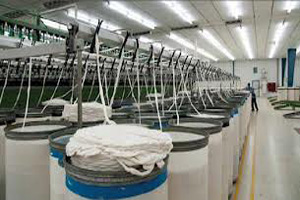
Moroccan industrial strategy to give new dimension of its textile sector
YarnsandFibers News Bureau 2014-06-27 08:30:00 – MarrakechThe industrial strategy approached by Morocco as given its textile industry a priority and ability to not only face but overcome the rising challenge of competition, especially from China and Turkey. Five projects are underway and agreements have been signed. These include an investment by Paris Texas in die finishing, printing and dyeing for MAD 101 million, Sefita is investing MAD 100 million in finishing and dyeing rooms. Plastima is investing in technical equipment for the textile industry with an investment of MAD 80 million. Morocco Quality Knitting is investing MAD 49.6 million and tint Color 2010 is investing MAD 16.88 million in the knitting sector. These projects will create 400 new direct jobs. Moulay Hafid Elalamy, the Minister has called for increased job creation and value added and is working at a policy of developing productive eco systems and groupings of industry sectors. This has already been successful in the automotive industry which has overtaken the textile industry in the amount earned by exports. The Minister has expressed confidence that the Moroccan textile industry will show significant growth soon. He emphasized the need to focus on job creation and value. The days when companies like Courtaulds and Dewhirst employed thousands of textile manufacturers vanished because of growing global competition, but Morocco’s textile industry has managed to survive regardless of very strong competition. AMITH, the textile association has recognized the need to merge and rationalize the Moroccan textile industry and a premeditated strategy to penetrate global markets despite tough competition. Morocco has the advantage over its proximity to Europe, and the other is the relatively lower wage costs and the natural skill and dexterity of its workers, the majority of whom are women. It has recently signed agreements to invest in new equipment which is not easy to do during a global recession. The industry has changed and is now acting in respond fashion industry needs what is termed “fast fashion” where fast turn round times and delivery are required. Zara for example prefers small producers with a very short delivery deadline, favoring the geographical proximity of very active partners with production deadlines, sometimes as short as eight days between ordering and completion. Morocco is the main supplier to Inditex (owner of Zara and Massimo Dutti). The American market also remains very important for Moroccan textiles and garments and which is supported by the free trade agreement between the two countries. Minister of Industry, Trade, Investment and Digital Economy, wants to raise the contribution of textile industry in GDP from 14% to 23% by 2020 and create 500,000 manufacturing jobs.
Market Intelligence
Ask for free sample Report

experience
Customer Base
dedicated team
Countries Served Worldwide









